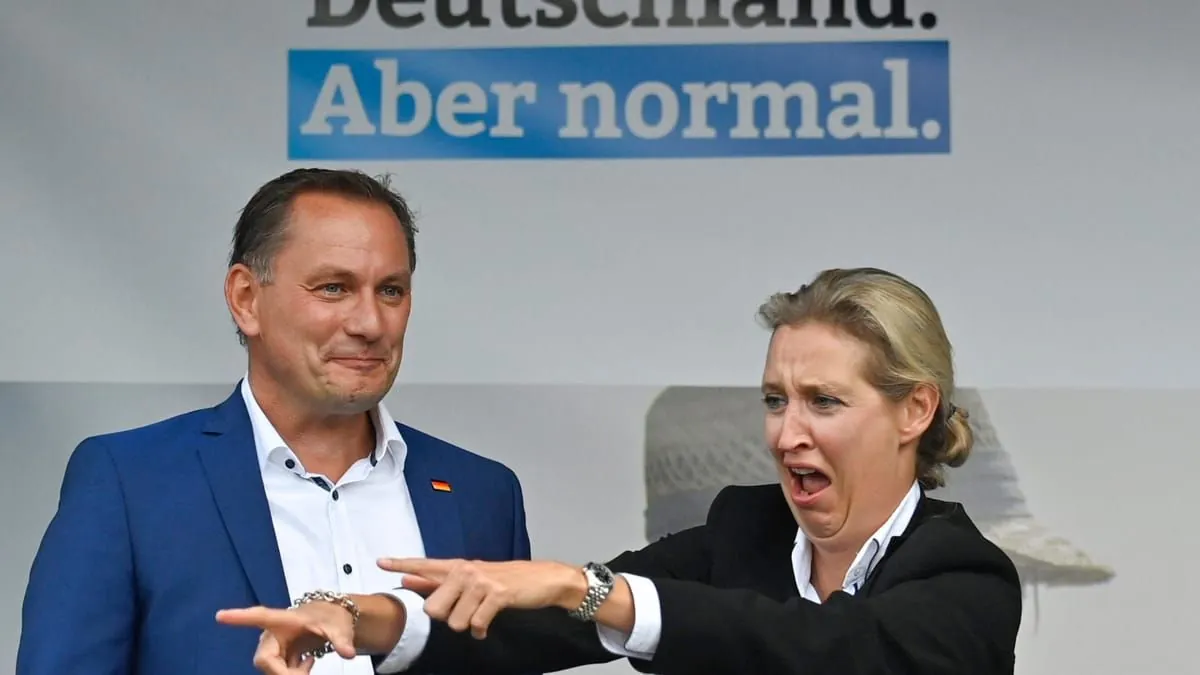German States Brace for Potential Far-Right Surge in Upcoming Elections
Eastern German states prepare for crucial elections with the far-right AfD poised for significant gains. Concerns rise over potential shifts in governance and impacts on minority rights.

As the summer of 2024 draws to a close, Germany finds itself on edge, anticipating crucial elections in three eastern states. The votes in Saxony and Thuringia on September 1, followed by Brandenburg on September 22, could potentially reshape the political landscape of these former East German regions.
The Alternative for Germany (AfD), a party founded just over a decade ago, is projected to secure around 30% of the vote in Saxony and Thuringia. This potential outcome has sparked concerns about the erosion of long-standing political norms in post-war Germany.
While a strong showing by the AfD doesn't guarantee their participation in government, it raises questions about coalition formation. The Christian Democratic Union (CDU) and other established parties have traditionally maintained a "firewall" against cooperating with far-right groups. However, the emergence of the Sahra Wagenknecht Alliance (BSW), a new left-populist party, has introduced uncertainty to this stance.

The implications of AfD's potential rise to power are significant:
- Influence on state institutions
- Changes in law enforcement priorities
- Potential threats to judicial independence
- Impacts on minority rights and civil society organizations
Björn Höcke, a prominent AfD figure in Thuringia, has faced legal consequences for using Nazi symbols, highlighting the party's controversial nature. Germany's domestic intelligence service has even designated the Thuringia AfD as an extremist group.
"We will definitely make Thuringia as unattractive as possible for social migration. We will make it clear that the Thuringia department of the International Welfare Office Germany is closed."
This statement reflects the AfD's hardline stance on immigration and social policies, raising concerns among minority groups and civil society organizations.
Jasmin Gräwel of Christopher Street Day Leipzig, an LGBTQ+ rights group, expressed worry about potential funding cuts and increased vulnerability for minority communities if the AfD gains power.
The upcoming elections serve as a critical test for Germany's political system and its ability to maintain democratic norms in the face of rising populism. As the country approaches this pivotal moment, the eyes of Europe and the world remain fixed on these eastern German states.


































